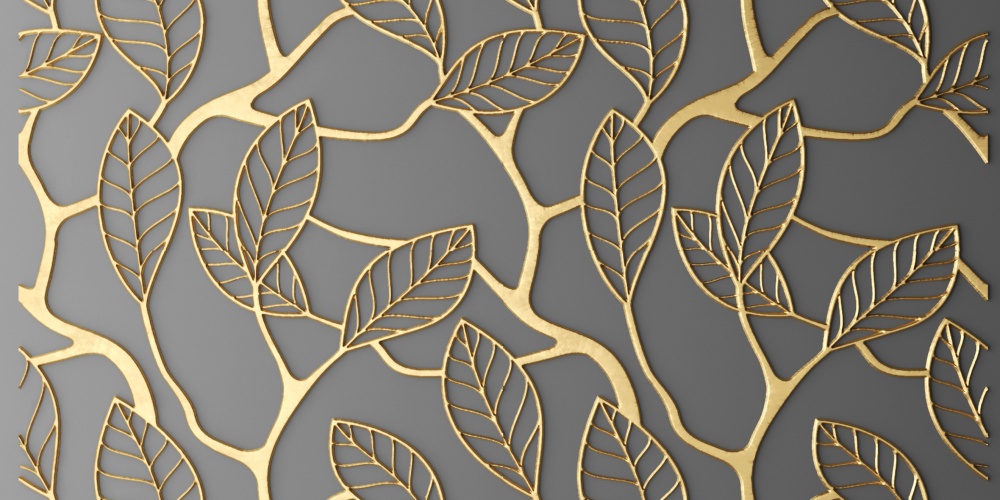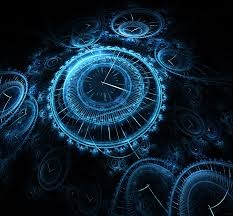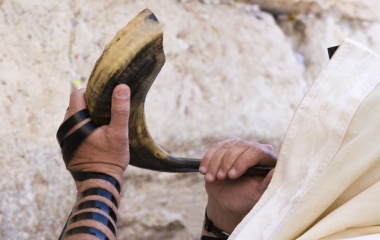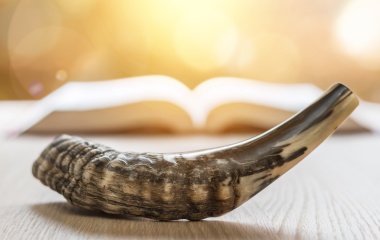
Rosh Hashanah celebrates the coronation of G-d as King of the universe. And having G-d as our King is worthy of celebration. Rosh Hashanah is referred to by the Mishnah as the “Yom Tov of Rosh Hashanah”, something not done for other holidays. We are commanded to eat a joyous meal, confident in facing judgment from the one true King.
In keeping with the theme of Kingship, the chazzan begins shacharit with “Hamelech, the King”, his voice rising in a crescendo as he declares G-d's majesty; only approaching the amud (prayer lectern) to continue his prayers after “coronating” G-d. The liturgical poems all revolve around the theme of G-d as King, and Malchiut, Kingship, plays a central role in the special mussaf davening.
“And so, G-d our Lord, instil Your terror on all Your works and dread upon all that You have created”. So begins the special additions to each one of the Rosh Hashanah amidot. Our first encounter with the Master of the universe must instill fear and trembling. But that fear must not freeze us; rather it must unite us. “Let them all become a single society, to do Your will wholeheartedly”. Being alone is very frightening; having the companionship of others enables us to overcome much. It is only with the help of others that we can truly worship G-d. The Torah was given to the nation of Israel, with each person making their contribution to the people of Israel. The Rambam goes so far as to declare that one who separates from the community loses their share in the world to come, irrespective of their personal piety.
When fear helps to bring us together, we see G-d in a different light. And so the machzor continues, “G-d, our Lord, give honour to Your people, and praise to those who are in awe of You, and hope to those who seek You”. The unity of the Jewish people is what gives us honour, praise, and hope. And with hope we have joy. “Gladness to Your land and joy to Your city”. No matter how difficult a situation we may find ourselves in, hope sustains us, leading to joy as we look forward to better days. When hope is lost, life can be unbearable. It is not by chance that Israel's national anthem is Hatikva, The Hope. Our prayers move from fear to hope, from G-d's power to G-d's benevolence.
This past year brought much hope to the world. Much more than in many other years, we see before our eyes the fulfillment of the words of the machzor: “Regarding the countries, it is said on this day which is destined for the sword and which for peace”.
The upheavals that we are in process of witnessing have been swift and unexpected. Yet what started with great hope is turning to great fear. While the impetus for the Arab spring may have been human rights and freedom, we are in danger of the crushing of that hope with repression and terror. What makes this frightening scenario that much more tragic is that such repression is carried out in the name of G-d, causing many to view all religions in a much more negative way.
The manner in which we worship G-d makes all the difference. “Torah scholars increase peace in the world”. Our Torah must be the Torah of peace. Tragically that is not always the case. The power of religion enables it to be (mis)used as a tool for evil. As we strengthen our commitment to G-d, we must have a corresponding increase in our commitment to those created in His image.
Our implementation of Torah must give people—all people—honour, hope and joy. If we succeed, then we will merit seeing the fulfillment of the next paragraph of the machzor; “Then You, G-d will reign alone over all Your works, on Mount Zion, resting place of Your glory, and in Jerusalem Your holy city”. May we be blessed with a year of hope, joy and the Majesty of G-d bringing honour to all. And may the upheavals of this year be those of the redemption.
Shana Tova!



